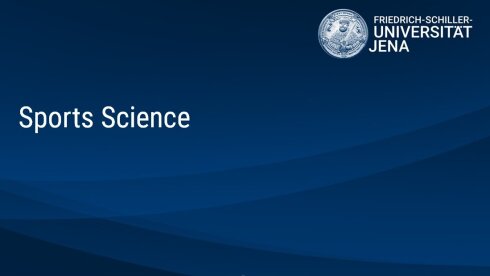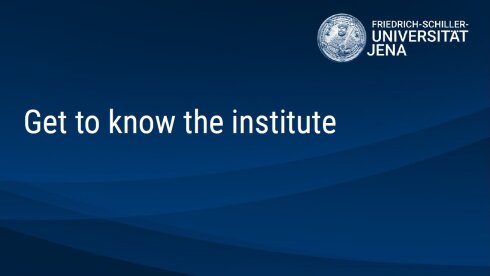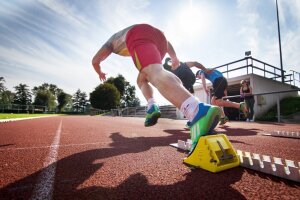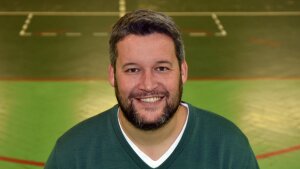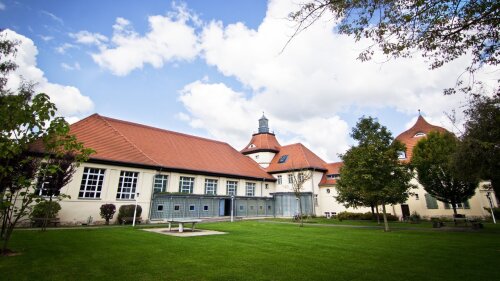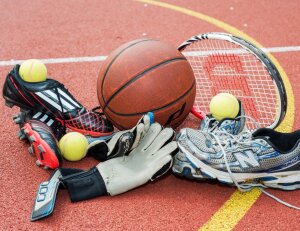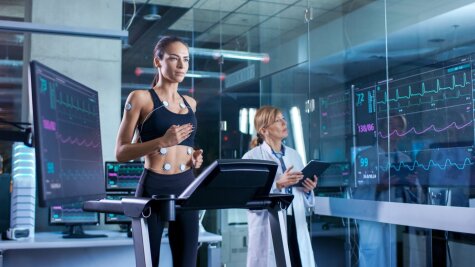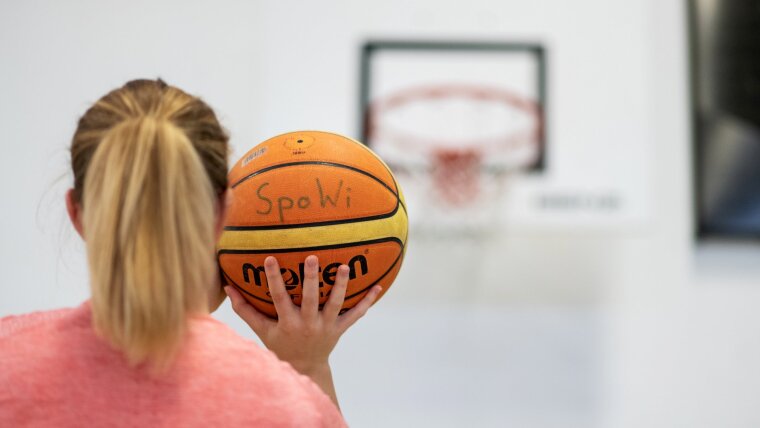
Digital discovery tour with free app: Would you like to find out more about our degree in Geography with fun quiz questions and puzzles? Click here for our interactive discovery tour app.
More detailed information can be found in the module catalogue for the study programme [in German].External link
- Excellent teaching: Experienced teaching staff and modern training concepts ensure that graduates earn a top quality and internationally recognized degree and thus the best possible qualifications for the demands of the labour market.
- Good ratings: In teaching evaluations, the University's sports science programmes always achieve above-average positions. The reason is simple: It is mainly due to the good supervision ratio and the qualified specialists in teaching and research.
- Innovative research: The Institute covers the core areas of sports science. The research profile is characterized by a clear orientation towards the topic of ‘Health’.
- Top facilities: Modern sports facilities, lecture theatres and seminar rooms await you at the Institute of Sports Science in Jena.
- Adventure abroad: If you dream of spending a semester abroad, you can easily make it come true. Our University has a worldwide network of partner universitiesExternal link.
Sportutensilien
Image: Christoph Worsch (University of Jena)- fitness management / gyms
- working for clubs / coaching / sports associations
- public health and mass sports
- hospitals and rehabilitation centres
- sporting goods manufacturers
- workplace health promotion
- public health education / health insurance providers
- employer’s liability insurance associations
- scientific career
- product development
- sports journalism
-
University entrance qualification
A university entrance qualification, such as a general secondary school leaving certificate, is required for admission onto the study programme.
More information on university entrance qualifications can be found here.
-
Medical certificate
In order to be admitted to a sports science programme at Friedrich Schiller University Jena, you must provide doctor’s certificate confirming your medical eligibility.
-
Language requirements
Admission and language requirements for applicants of foreign nationality and without German Abitur: www.uni-jena.de/en/study-orientation-international
Room O101d
Seidelstraße 20
07749 Jena
Google Maps site planExternal link
Wöllnitzer 42
07749 Jena
Google Maps site planExternal link
Seidelstr. 20
07749 Jena
University Main Building / SSZ
Fürstengraben 1
07743 Jena
Google Maps site planExternal link
Office hours:
We offer consultations in person, by telephone, and via Zoom. You can make an appointment by calling us on +49 3641 9-411111 (Mondays to Fridays from 9:00 to 11:00) or outside these office hours on +49 3641 9-411200. You can also use our remote help desk.
Consultation hours:
Mondays, Tuesdays, Thursdays and Fridays (9:00 to 12:20), Tuesdays (14:00 to 18:00), and Wednesdays and Thursdays (14:00 to 16:00).
Video chat: To the video chat – Zoom Videochat ZeitenMondays to Fridays (12:30 to 13:00) Password ZSB2020 Data protection informationpdf, 101 kb
University Main Building, Room E065
Fürstengraben 1
07743 Jena
Google Maps site planExternal link
Opening hours:
Mondays (10:00 – 12:00)
Tuesdays (13:00 – 15:00)
Wednesdays (10:00 – 12:00)
Thursdays (13:00 – 15:00)
Fridays (10:00 – 12:00)
You can also use our remote help desk at
www.uni-jena.de/service-ssz
or send us your enquiries by post.
Telephone hours:
Mondays to Fridays
(9:00 – 11:00)
Postal address:
Friedrich-Schiller-Universität Jena
Studierenden-Service-Zentrum
07737 Jena
University Main Building
Fürstengraben 1
07743 Jena
Google Maps site planExternal link
